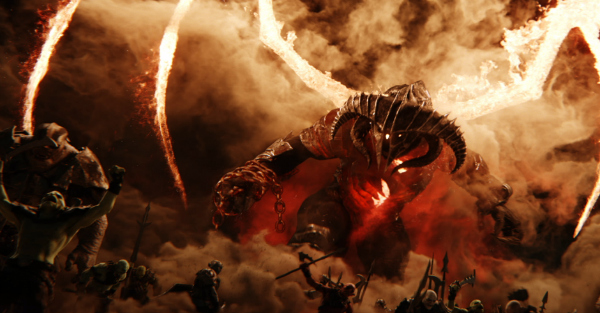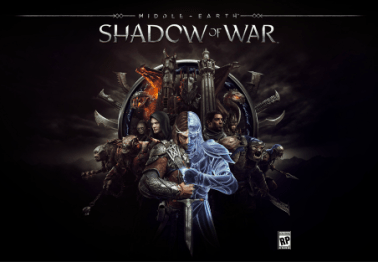Warner Bros. and Monolith Productions recently unveiled a system of microtransaction-based, optional purchases for upcoming fantasy sequel Middle-earth: Shadow of War, and - to nobody's surprise - the announcement sparked outrage among the gaming community, igniting calls for boycott and various hysteric forum posts across the Internet.
The system will give players the opportunity to "create a unique personal world through the Nemesis fortress, which allows players to utilize different strategies to conquer dynamic strongholds and create personalized worlds with their unique Orc army."
In simpler terms: You can buy Orcs now.

Via YouTube.
Ok, so there's actually a lot more available than just Orcs. Players will be able to obtain various pieces of gear, armor, XP-boosts, and more from a variety of loot boxes available in-game. Monolith explained this system in a bit more detail:
- Loot Chests contain Gear (weapons and armor) of varying rarity. Equipping and upgrading these weapons and armor enhance Talion's character abilities. Loot Chests can also contain XP Boosts that help level up Talion faster.
- War Chests provide Orc followers of varying rarity to help forge a strong army. They can also contain Training Orders to level up and customize Orc followers.
- XP Boosts are consumables that help level up Talion faster.
- Bundles package up Loot Chests, War Chests and Boosts together at a great value.
As expected, these are all obtainable both through an in-game currency and with real money. Miriam, which appears to be the widely-accepted form of payment in Middle-earth, acts as the former, and is available by defeating a special type of treasure-carrying Orc, destroying gear looted from defeated Orcs, and by simply finding stashes of Miriam around the game.
Then there's gold, which can actually be obtained without paying real money - albeit in miniscule doses. Gold is awarded to the player as they complete "specific milestones" and for undergoing community challenges. Naturally, it's also purchasable through whichever console you're using's associated marketplace.

Via wbgames.com.
Of course, there's a number of legitimate criticisms to be made against this system. For one, Shadow of War is $59.99 - or, at least, the Standard Edition is. The Silver and Gold Editions are $79.99 and $99.99, respectively. There's also DLC coming down the line as well, which means overly-enthusiastic players could be spending well over $100 on this single-player video game.
Then, there's the fact that these items aren't even obtainable directly, but through loot boxes. The practice of locking cosmetic content behind a paywall that players then must gamble to get through has been previously denounced as potentially predatory for its reliance on select "whales" or individuals who, lacking either discipline or restraint, spend hundreds or even thousands of dollars in pursuit of that one desired item. This, on top of the already significant price tag, is not only greedy - it's really kind of despicable.
There's still time for Monolith and Warner Bros. to prove everyone wrong, however. The pricing system behind gold hasn't been revealed yet, and there's nothing locked behind real money that can't be otherwise earned without paying an additional cent. It's possible that the system will be quite affordable and balanced, though admittedly unlikely.
Middle-earth: Shadow of Mordor will launch on October 10 for the PlayStation 4, Xbox One, and PC. For future developments, follow the developers on Twitter to receive instant news and updates, or visit the game's website for access to community forums, developer blog posts, and more.

